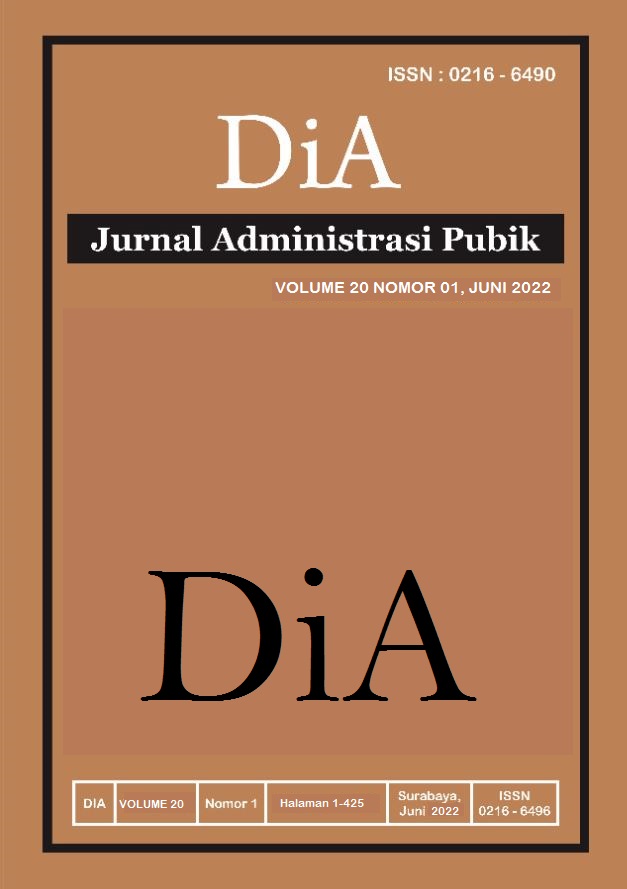THE EFFECTIVENESS MODEL OF PKK INSTITUTIONAL EMPOWERMENT IN WOMEN AND COMMUNITY EMPOWERMENT IN GUBENG DISTRICT, SURABAYA CITY
DOI:
https://doi.org/10.30996/dia.v20i01.5744Keywords:
Effectiveness, Community Empowerment, Empowerment of Family Welfare (PKK)Abstract
The purpose of this study was to determine the effectiveness of the social institution of the Family Welfare Empowerment Organization (PKK) in empowering women and communities in the District of Gubeng, Surabaya City. The research method used was descriptive qualitative. The data collection technique uses library research and field research in the form of observation and interviews. Sources of data were obtained using purposive sampling technique with key informants from the PKK Team from each Pokja and Community. The result of the research shows that the community has an awareness of changing by following each program that is implemented. However, the community is less involved in determining the programs to be implemented by the PKK institution in empowering women and communities in Gubeng District, Surabaya. The PKK driving team in Gubeng District and community leaders as the PKK driving team involved in making decisions about the PKK activity program so that the PKK institution in empowering women and communities in Gubeng District, Surabaya cannot be said to be effective due to the capacity of the community who has not been able to take a role in making decisions or the choices that people need.
Downloads
Downloads
Published
How to Cite
Issue
Section
License
The DiA journal allows authors to retain the copyright of their papers without limitation. Authors may grant publishers non-exclusive publishing rights to publish articles. Granting first publishing rights to publishers also qualifies as unlimited copyright (because there are no restrictions imposed by publishers on author copyright).







